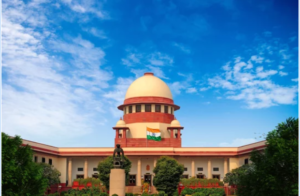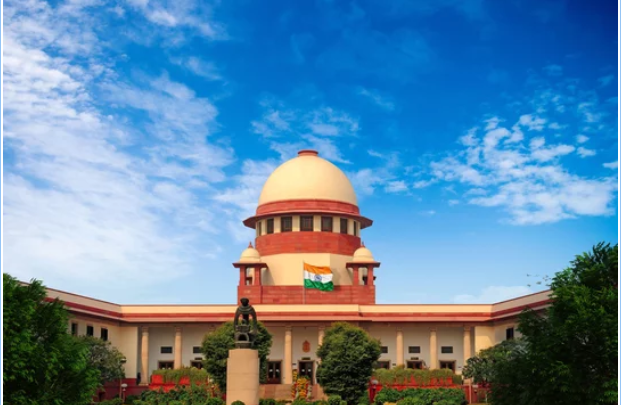CAA implementation: The Citizenship (Amendment) Act (CAA) has been a subject of intense debate and controversy since its inception.  for more information click on this link
for more information click on this link
The Citizenship CAA implementation(Amendment) Act, 2019, was passed by the Indian Parliament on December 11, 2019. The act amends the Citizenship Act of 1955 to grant Indian citizenship to non-Muslim migrants from Afghanistan, Bangladesh, and Pakistan who arrived in India before December 31, 2014, due to religious persecution. The legislation sparked controversy primarily due to its exclusion of Muslims, leading to allegations of religious discrimination and a violation of the secular principles enshrined in the Indian Constitution.
Since its enactment, the CAA has faced numerous legal challenges in various courts across India. Petitions have been filed arguing that the act violates the fundamental rights guaranteed by the Constitution, particularly the right to equality and the right to freedom of religion. Several states, including Kerala, West Bengal, and Punjab, have passed resolutions against the implementation of CAA within their respective territories.
In CAA implementation response to these legal challenges, the Supreme Court of India has agreed to hear pleas seeking a stay on the implementation of CAA. The decision to consider the matter on April 9, just days before the commencement of the Lok Sabha polls, underscores the significance and urgency of the issue. However, the government’s refusal to commit to refraining from granting fast-tracked citizenship to non-Muslim migrants during the pendency of the case adds another layer of complexity to the proceedings. The CAA has been at the center of a polarizing political discourse in India. Supporters argue that the legislation is a humanitarian gesture aimed at providing refuge to persecuted minorities fleeing religious persecution in neighboring countries. They contend that the CAA implementation act is in line with India’s historical role as a safe haven for refugees and religious minorities.
On the other hand, critics view the CAA implementation as discriminatory and unconstitutional. They argue that the exclusion of Muslims from the purview of the act is a blatant violation of the secular principles enshrined in the Indian Constitution. Critics also express concerns about the potential ramifications of the legislation on India’s social fabric and communal harmony.
The Supreme Court’s decision on the pleas seeking a stay on the implementation of CAA is eagerly awaited by all stakeholders. A ruling in favor of the petitioners would temporarily halt the implementation of the controversial legislation, providing relief to those who oppose its provisions. Conversely, a decision in favor of the government would allow the CAA to remain in force, potentially emboldening its supporters and exacerbating existing tensions.
Furthermore,CAA implementation the Supreme Court’s verdict could have broader implications for the future of secularism and minority rights in India. It will serve as a litmus test for the judiciary’s commitment to upholding the principles of equality and religious freedom enshrined in the Constitution. Additionally, the outcome of the case may influence the trajectory of similar legislative initiatives and shape the discourse surrounding citizenship and identity in India.
The Supreme Court’s decision to consider pleas seeking a stay on the implementation of the Citizenship (Amendment) Act comes at a critical juncture in India’s democratic journey. The outcome of the case will not only determine the fate of the controversial legislation but also have far-reaching implications for the country’s secular fabric and constitutional values. As the nation awaits the court’s verdict, the debate surrounding CAA underscores the importance of safeguarding democratic principles and upholding the rights of all citizens, irrespective of their religious or ethnic backgrounds. check the post






mostbet официальный сайт http://mostbet6006.ru .
официальный сайт 1win http://familyclub.borda.ru/?1-6-0-00002163-000-0-0-1743051813/ .
1вин приложение 1win6001.ru .
1 win kg https://balashiha.myqip.ru/?1-12-0-00000437-000-0-0-1743258848 .
1win kg 1win6049.ru .
1.вин https://www.alfatraders.borda.ru/?1-0-0-00004932-000-0-0-1743258210 .
mostbet apk скачать https://svstrazh.forum24.ru/?1-18-0-00000136-000-0-0-1743260517/ .
1вин партнерка http://obovsem.myqip.ru/?1-9-0-00000059-000-0-0-1743051936 .
1win,com http://www.1win6051.ru .
1win зайти 1win зайти .
игра ракета на деньги 1win http://1win6052.ru/ .
motsbet https://mostbet6029.ru/ .
партнёрка 1win https://1win6053.ru/ .
1win букмекер http://www.1win6053.ru .
1win metode de plată https://1win5011.ru .
мостбет мостбет .
скачать 1win с официального сайта https://www.1win6009.ru .
тревожная кнопка охрана росгвардия тревожная кнопка охрана росгвардия .
Где приобрести диплом специалиста?
Полученный диплом со всеми печатями и подписями целиком и полностью отвечает запросам и стандартам, неотличим от оригинала. Не откладывайте свои мечты на потом, реализуйте их с нашей помощью – отправляйте заявку на изготовление документа прямо сейчас! Диплом о среднем образовании – не проблема! edujoinnow.com/employer/premialnie-diplom-24
Где приобрести диплом по актуальной специальности?
Мы можем предложить дипломы любой профессии по разумным ценам. Важно, чтобы дипломы были доступными для большого количества наших граждан. Купить диплом об образовании diploml-174.ru/diplom-s-provodkoj-karernij-rost-i-uspex/
пластиковые окна на заказ пластиковые окна на заказ .
окна новосибирск http://www.oknasibirinsk.ru/ .
https://mirka-master.ru/kupit-plastikovye-okna-v-sankt-peterburge-nadyozhnoe-reshenie-ot-kompanii-afina-okna/
ипотека под мат капитал https://www.crediteurasia.ru .
заказать окна в москве заказать окна в москве .
Thanks for the article. Here’s more on the topic https://shvejnye.ru/
стоимость погреба под ключ .
Thanks for the article https://knowmedge.com/medical_boards_forum/viewtopic.php?f=6&t=14632 .
Thanks for the article https://qiita.com/gromovmichael4 .
Website https://imgtube.ru/
промокоды сегодня
Todo sobre consultas, cirugías y tratamientos de infecciones urinarias está descrito en la Clínica de Urología Moderna de forma accesible.
Si te preocupan las infecciones urinarias recurrentes, en la Clínica de Urología Moderna encontrarás explicaciones claras y soluciones.
Si buscas respuestas fiables sobre problemas urinarios, la Clínica de Urología Moderna las reúne todas en un solo sitio.
лучшие автоматические тонометры
Si quieres entender cómo se tratan hoy las patologías urinarias, revisa los contenidos de la Clínica de Urología Moderna.
лучшие экскурсии по рекам и каналам Санкт-Петербурга